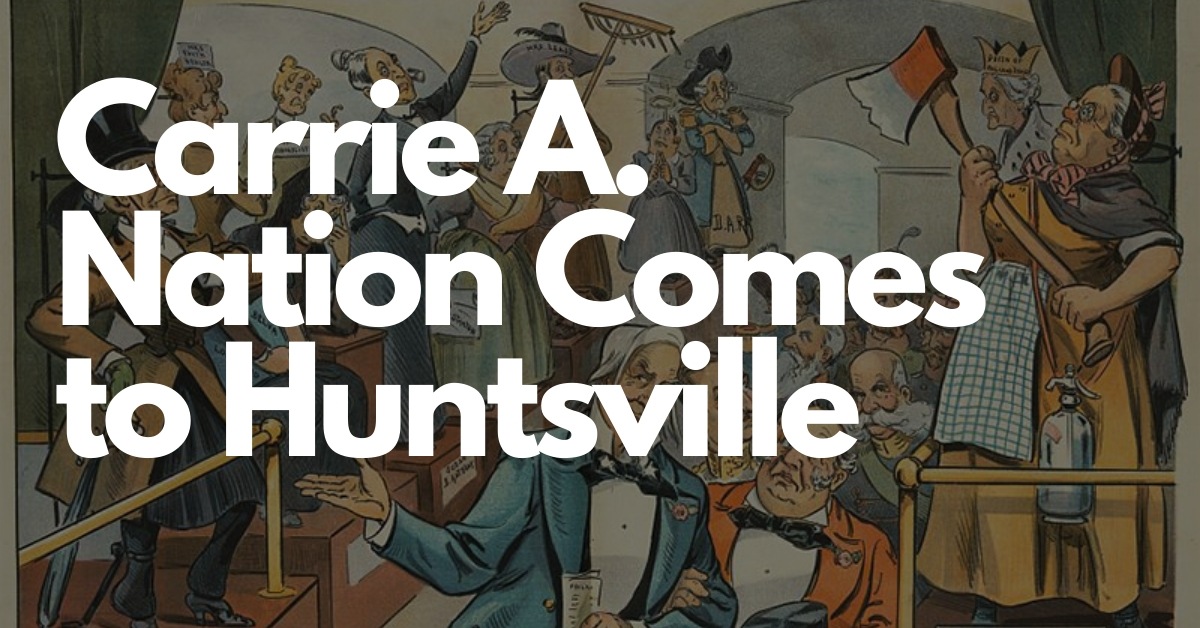
The Hatchetations of a Saloon Smasher in Huntsville
Carrie A. Nation came to Huntsville looking for a fight. And if she had her way, the streets of downtown Huntsville would run wet with the lifeblood of the nonbelievers. Not a barrel of whiskey, not a glass of gin, or a pint of beer was safe with her in town.
Some called her righteous, others crazy, but no one debated her motives on October 25, 1902. At a time when women couldn’t vote or have full access to the ideals of “life, liberty, and the pursuit of happiness,” Carrie Nation literally wielded a hatchet to make her mark on American society.
Her personal war against alcohol, booze, brown water, John Barleycorn . . . or whatever you called an adult beverage back then began after her first husband died from the bottle.
Instead of mourning her loss as most people did, Nation grabbed a handful of rocks and began to smash the liquor bottles of local bars and saloons in her hometown in Kansas.
She later added a hatchet to complete her new celebrity makeover and before anyone could say otherwise the anti-saloon crusader was well on her way to ruin as many happy hours as she could. Spilled cocktails and broken beer bottles marked her progress as word of the “saloon smasher” spread across the country.
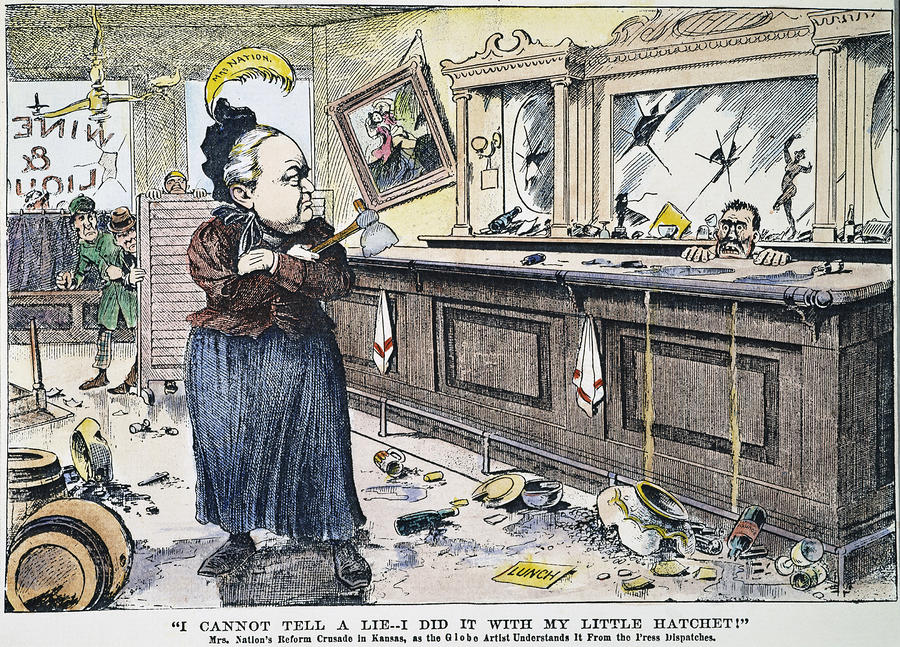
The United States was a society in transition in 1902.
A nation of small farmers and producers had given way to large factories and the Industrial Revolution. New inventions and ideas pushed Americans away from their local communities and asked them to become a nation of profit-minded capitalists who thrived on mass production and efficiency.
In 1902, Americans could forgo the local storyteller for the entertainment of the first public radio broadcast, could skip the nearby vaudeville show to visit the first movie theater, and avoid Alabama’s hot summer nights on the front porch and instead enjoy the icy goodness of the first air-conditioned room. Locally, E.P. Quigley surveyed downtown Huntsville and marked a growing city of 43,000 on his new “Quigley Map;” including a new infant named Tulluah Bankhead in that count.
Half of America was stuck in the past and the other half was obsessed with the future.
In times of flux many Americans, for good or bad, turned to the bottle to self medicate.
Alcohol had been an important part of American culture since the Whiskey Rebellion plagued George Washington’s presidency in 1791. The days of coming home for lunch and enjoying a beer or hard cider worked for the farmer, merchant, or small producer of the early nineteenth century but it didn’t work so well in the large, dangerous factories of twentieth-century America.
Women who worked from home saw the destructive ways of the bottle and began to form temperance groups that fought drinking, bars, and all the sin that tends to go with both. But old ways died hard and the Temperance movement fought an uphill battle against men who held formal political power and the keys to the saloon. But these women never stopped fighting.
Carrie Nation became a national phenomena. She represented hundreds of thousands of American women who had advocated, protested, and made real change in everything from slavery to drinking during the past century. They may have lacked political power in 1902 but they didn’t lack the resolve, organization, and ability to change popular culture and eventually the rules.
The Women’s Christian Temperance Union (WCTU) had fought the ills of alcohol by creating local WCTU chapters in many towns and cities across America. For Huntsville to get a visit from Nation was a real coup for local women who opposed downtown drinking establishments that catered to the “shot and a beer” crowd that left the local cotton mills and stopped in for a drink before going home.
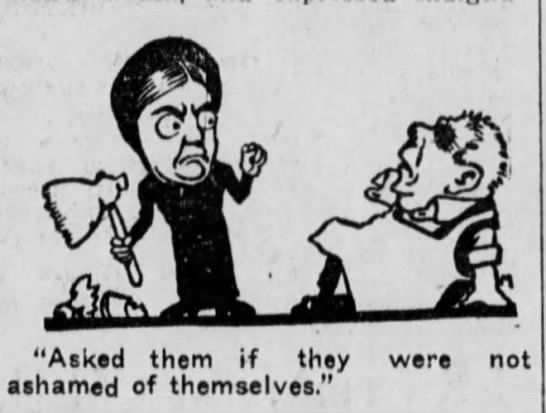
The WCTU and Carrie Nation were about to put all Huntsville drinkers on notice!
Carrie Nation waited impatiently for her local handlers as she stood on the wooden platform of the Huntsville Railroad Depot. She had a busy day planned. Dressed in a high-necked gray dress with a white bow and hat, Nation stood out among the growing crowd of onlookers. It also didn’t hurt that she stood nearly six feet tall at a time when the average man stood at five and a half feet tall.
She started with a keynote speech at the Huntsville Opera House which was located on the corner of Jefferson and Clinton Streets where the Hutchens Building now stands. She filled the main floor and balcony of the old brick Opera House, and gave a fiery prohibitionist speech to the crowd sans her famous hatchet.
But she wasn’t done for the day because now it was time to take to the streets and confront Huntsville’s blissful, unrepentant drinkers.
Her battle began at the “The Dew Drop” which was located near the Huntsville Railroad Depot.
Her tactics were familiar. She entered the saloon, looked for a man with a drink, and then let loose with a torrent of words on the evils of drink. Once her wrath had peaked she would tell the poor sot that the gates of heaven had just shut on him and that “hell is his portion forever.” Not satisfied with just one saloon, Nation moved on to C.C. Baxler’s bar and then to John Vairne’s establishment. By the time she got to the last bar she had picked up hundreds of jeering men and supportive women along the way.
She had done her job. She may have been shouted down by the men of Huntsville and seemingly lost the battle in 1902, but in reality, she had won the war against strong drink in Alabama. But no one in that crowd would know it for another thirteen years.
Nation left Huntsville without closing a single saloon but her actions, and the actions of thousands of local women like her, led to the “bone dry laws” that eventually made Alabama a dry state in 1915 . . . a full five years before the United States passed the Eighteenth Amendment.
Although Carrie Nation didn’t live to see her work complete, she did leave a mark (and not a hatchet mark) on Huntsville that proved that women had power even when denied formal political power by men. Her voice mattered but she had to raise it to be heard and she did.
And to that we say . . . cheers!

Guest blogger for We Are Huntsville. Are you interested in writing a post for our site? Email katelyn@wearehuntsville.com.

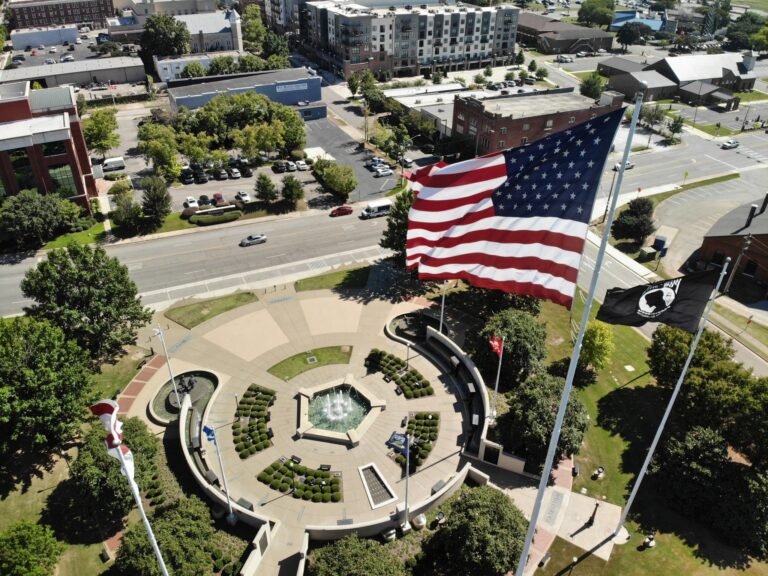

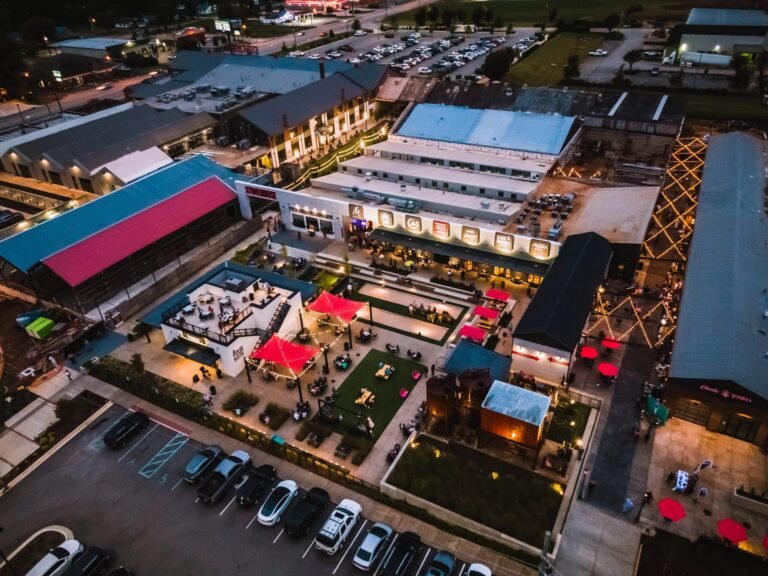

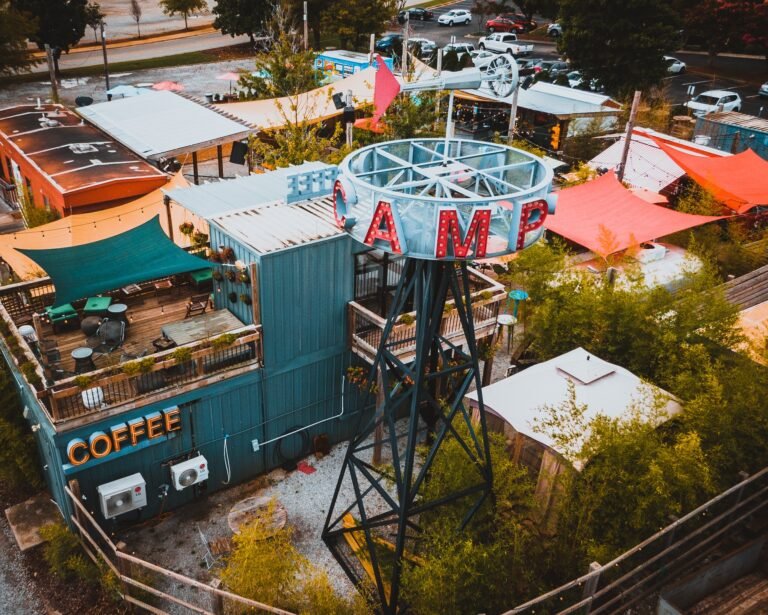
I just wasted 5 minutes of my time reading this dribble.
You are an excellent storyteller.